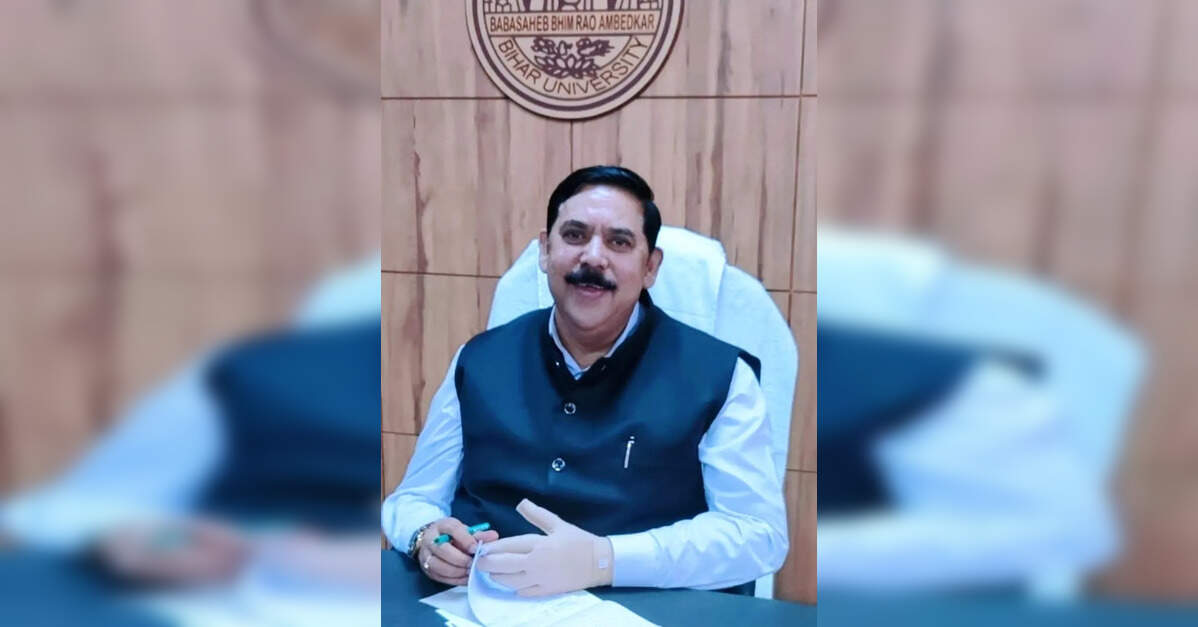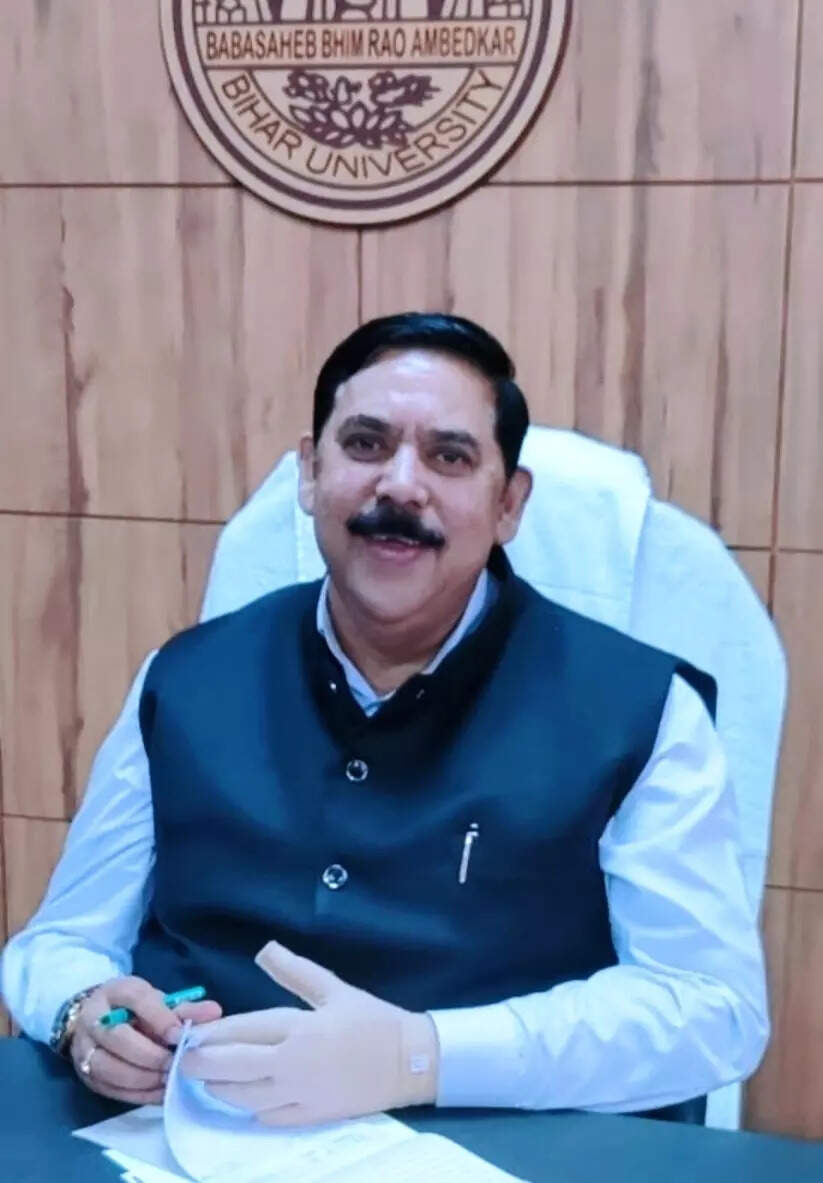
Honoring the architects of Viksit Bharat 2047, ETEducation

By Prof. Dinesh Chandra Rai.
On this special occasion of Teachers’ Day, celebrated on 5th September, we are reminded of the incredible debt we owe to the educators who have shaped our lives. The journey to a Viksit Bharat, a developed India by 2047, is not just about economic and technological progress; it is about building a strong, ethical, and knowledgeable society. In this grand national project, the teacher is the true cornerstone. They are the ones who turn classrooms into launchpads for our nation’s future, molding young minds and laying the groundwork for a prosperous tomorrow. It’s fitting that we honor Dr. Sarvepalli Radhakrishnan on his birth anniversary, a true visionary whose life showed us that a teacher is more than an instructor—they are a guide, a philosopher, and a nation-builder. His legacy reminds us that investing in our teachers is the single most important investment we can make in our country’s future.A Legacy of Nation-Building
India’s development story, from the dawn of independence to the powerhouse it is today, has been profoundly shaped by the silent and persistent work of its teachers. Beyond the grand narratives of political and economic reforms, it was the teacher in every village and city who patiently brought literacy to millions, making them participants in the national project. This foundation of education and awareness allowed our society to overcome challenges and embrace new opportunities. We have seen how figures like Madan Mohan Malaviya, through his vision for Banaras Hindu University, created a temple of learning that would produce generations of leaders.I also have the privilege of being the manas putra of Mahamana. In the modern era, educators like Dr. A.P.J. Abdul Kalam, a scientist and President, always saw himself first as a teacher, inspiring countless students to pursue science and innovation. These individuals and a multitude of unnamed, dedicated teachers across the country have built the human capital that drives our progress today, from our thriving IT sector to our advancements in space technology. The progress we celebrate as a nation is a direct result of their tireless efforts, one student at a time.The Teacher as a Catalyst for Change
India’s quest for a developed status requires us to move beyond traditional methods of education. The National Education Policy (NEP) 2020 is the most significant blueprint for this transformation. It recognizes that to prepare students for a rapidly changing world, we must empower our teachers to become more than just deliverers of information. The NEP calls for a shift from rote learning to a more holistic, multidisciplinary approach, making the teacher a facilitator who encourages curiosity and critical thinking. This is a profound change. Teachers must become partners in learning, helping students connect classroom knowledge with real-world challenges. This policy’s success hinges on their commitment and ability to adapt.The transition asks educators to reinvent their methods, to become mentors who guide students to be thinkers, not just learners. This is a crucial step in preparing our youth to be creators, not just consumers. It is the teacher who will cultivate these vital skills, one class at a time.Igniting Innovation and Research
Beyond simply teaching, teachers have a vital part to play in sparking innovation and research. While we rightly celebrate our top research institutions, we must remember that the desire to discover often begins in a school classroom. Teachers are uniquely positioned to turn a child’s natural curiosity into a lifelong pursuit of knowledge. By creating an environment where asking “why?” is encouraged and where intellectual risk is celebrated, they lay the foundation for the scientific and technological breakthroughs that will define India in 2047.When teachers engage in their own research, even on a small scale, they serve as powerful role models. They demonstrate that a life of continuous learning and discovery is a rewarding journey. This is how we build a strong research culture from the ground up—by making every classroom a potential laboratory for new ideas and every teacher a potential guide for the next big discovery. 5th September The values a teacher instills—like integrity and compassion—are the very building blocks of a resilient society. It is the teacher who helps shape this moral compass, one lesson and one interaction at a time. The cumulative effect of these efforts will create a society that is not only economically strong but also ethically sound.
Investing in the Future
The vision of a Viksit Bharat is a collaborative effort, and our teachers hold the key. To achieve this goal, we must give them the respect, support, and resources they deserve. We must invest in their training, recognize their contributions, and provide them with the professional autonomy to excel. When we empower our educators, we are essentially empowering every child, every family, and every community in our country.The path to a developed India is being paved in our classrooms. Every lesson taught, every student mentored, and every moment of inspiration shared brings us closer to our goal. Our teachers are not just shaping careers; they are sculpting the very soul of our nation. It is time we honored their profound responsibility with the support it deserves, for in their hands rests the bright and prosperous future we all dream of.
The author Prof. Dinesh Chandra Rai is the Vice-Chancellor of B.R.A. Bihar University, Muzaffarpur. Prof. Dinesh Chandra Rai’s contributions to both academics and research have been exceptional throughout his three decades in academia. His leadership, both as a professor at BHU and as Vice-Chancellor of BRA Bihar University, has significantly enriched the academic landscape.
DISCLAIMER: The views expressed are solely of the author and ETEDUCATION does not necessarily subscribe to it. ETEDUCATION will not be responsible for any damage caused to any person or organisation directly or indirectly.
Source link



